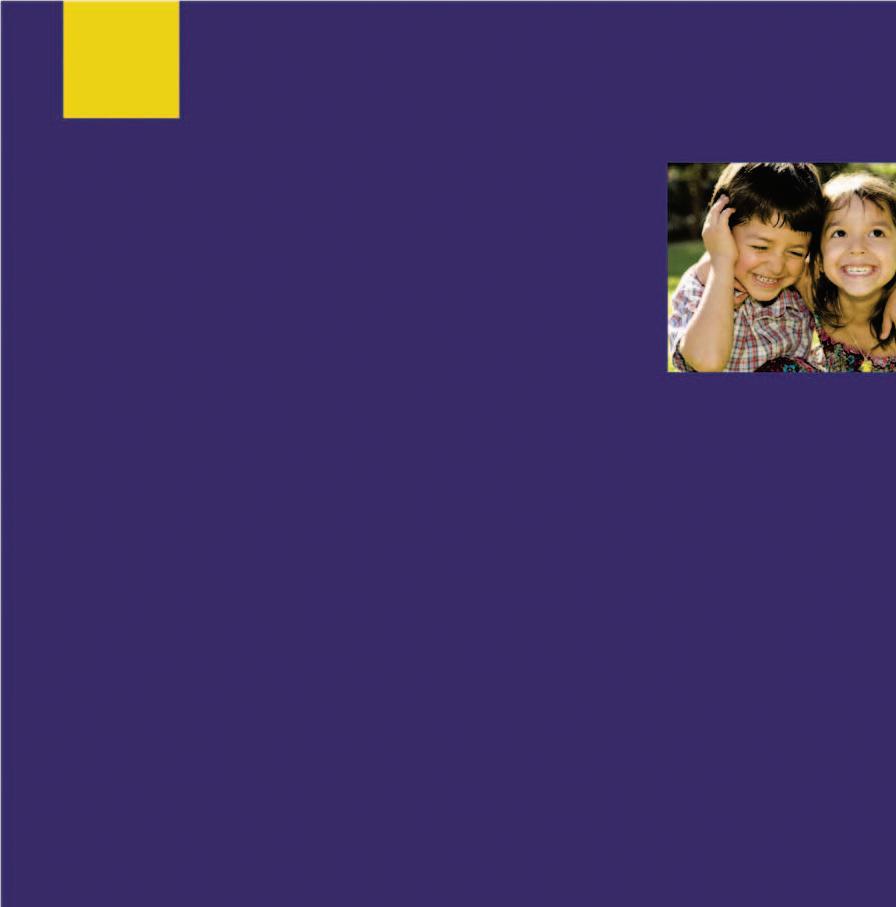
2 minute read
Parenting Challenges
A lasting relationship cannotbe based on fear.When the opportunity arises, and the victim can go free,s/he may notreturn back to the aggressive adult out ofsheer love and respect.
A sense of weakness and defenselessness instills lack of trust towardsthe aggressive adult and deepenshostility and resentment.The child buildsaprotective shield around himself notonly towards the aggressive adult but also generally in all of his relationships.
Advertisement
Over time,he may learn to become preemptively aggressive conflict situationsso that he does nothave to go through the same feelings of powerlessness he felt as achild. The sense of mistrust and resentment doesnotonly manifest in an abusive parent-child relationship but also develops in abusive adult relationships. Relationships involvingviolence and aggression instill in thevictim asense of lowself-esteem,lack of self-respect, self-compassion,and compassion towards others.

also teach our children positive ways to deal with conflict situations in their own lives, processing their own emotionsand developing the ability to address emotional issuesmore and maturely.
We usually tend to give time-outs to younger children.One strategy that is the exact opposite to atime-out which may workforyounger kidsis“time in”. Mostyoung kidsmay have meltdowns when they are hungryor tired.
They also tend to act up when they are generally notreceiving attention at short intervals.Younger kidssometimesneed structure and direction in their playtime too.When alone, they can getlost and feelfrustrated resulting in situationswhere theyact out or throw atantrum.That is the time for a parent to really step up and put some“time in” – time play a building blocks game with the child or to snuggle and read astorytogether.
As soon asIgive up the house work and turn mycomplete attention to my little one, his negative energy is channelized into positive actions. Conflict situationscan also be turned into opportunitiesto enhance problem solving skills amongchildren.Every time I entered my child’s closetIwould see clotheslying around on the floor.
Having learnedsomuch about the negative effects of spanking, Iam confident that,you, the readerisnow asking: So what are the alternativesto spanking?What can Ido when my kidspush me my wits end? Icannotletthem manipulate me!”There are several strategiesthat do not require the use of physical power and might. One can getthe child to follow the rulesas expected without spanking and physical punishment.
They are,no doubt, difficult to implement; because we are so used to responding with anger and then aggression. It will take some time unlearnthe negative responsesand re-learn positive strategieswhich only requireus to stay calm but firm. This learning and implementation will not only benefit us and our relationships with our spousesand children, but his thoughts and feelings. It isimportantnot to make judgements,call namesor blame the otherforsituation. Instead,both partiesshouldfirst take responsibility for their behavior.Having shared one’s emotionsandfeelings, itis easier to worktowardsa mutually agreeable solution.The solutionsmust come from both the childandthe parent. Letthe child comeup with a reasonable solution.However,oftentimesthey do have unrealisticsolutions too.At such times, the parent can steer them towardsamore workableoption such as: Instead of lettingyourclothes lie around in the closetonthe floorfor an entire week, how aboutyou hang them up or throw them in the wash basketeverynightwhenyoupickout clothesfor the nextschool day?
My immediate reaction would beto yell:When will you ever learn to put your clothesaway?Whyis it so difficult foryou to understand such a simple thing?You will never change!!!
I am notsurprised to see the mess in your closet! Such reactionsput the child down and prophesize how much of amisfitand failure heis.Instead,it is importantto notreact but to stay calm.The first step after calming down is to find the rightopportunity to have a conversation with the child wherein the adult can share their frustration
As aparent, we need to askourselves this question: Do I wantto spare the rod,yetraise awell-balancedand self-controlled child? If ouranswer is yes, then we must start workingon our responsesand reactionsfrom thisvery moment.We will make mistakes,we will transgress and lose our temper,yet we must continue to shapeourselves into better, emotionally mature individuals. Only then will our children follow our model and learnto respond toemotionallydifficultandconflictsituations in acalm and mature manner.
-- Shamsha Isani




































